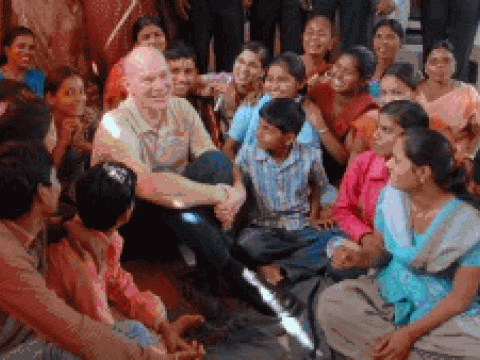The Parliament of hope

As President of World Vision, I had the honour of giving leadership advice to a new Prime Minister in India this week!
Sonam, 14, had just been elected unanimously by her peers in the central Delhi area of Shadipur as Prime Minister of the Delhi Child Parliament. She quickly began with a speech urging her fellow ministers and supporters to transform their community.
“I want you all to go out and make me proud!” she said, in a delightful echo of India’s political speech-makers. “We must all go forward together!”
The opening of their parliament was the first honour and public recognition that Sonam and her friends have ever received. They live in a community where many are street children, and life is characterised by drug addiction, physical and sexual abuse and severe poverty.
For Sonam, as for so many, their earliest memory was of ‘rag-picking’ – sorting through other people’s garbage for anything that might be sold.
World Vision began working in nine locations in the community two years ago. Just seven staff have transformed the expectations of thousands of children and their parents by sharing the daily lives of the community. They forge partnerships with government departments, schools and other institutions which care about these most-vulnerable urban children.
By helping to form women’s groups, children’s clubs and nearly 200 self-help groups which bring families a steady income, the project has managed to get almost all the local primary-age children to attend school. Many of their older peers – including Sonam – now attend ‘Open School’ and learn vocational skills for their future.
World Vision’s project manager Raifiel Jos, a trained psychologist, marvelled at Sonam’s speech-making. “When we first came into these areas, these children were unable to speak coherently or connect ideas,” she explained. “Now when the project staff talk to Sonam she seems to have grown … and is able to reflect and analyse.”
In two days visiting children in Delhi, I have been amazed once again at how resilient children are, and how profoundly their lives can be changed by an opportunity to find safety, education, healthcare and someone who loves them. Whether it is from the moving stories I heard in North Delhi Area Development Project, which is funded by sponsorship, or in the specially-funded work in central Delhi, every child’s life is an opportunity to create hope for the future.
“This community was not at all respected because of the way they lived,” Raifiel told me. “The people have so much hope on their faces now.”